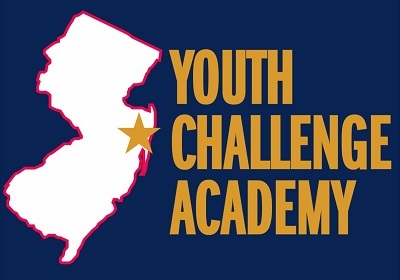Academics
Overview
At the Academy, cadets will take classes 5 days a week, 6 periods a day, with periods being 50 minutes long over a course of 18 weeks. The primary direction of all educational instruction is assisting the cadets with the needed skills to aid them in passing the High School Equivalency Exam (HSE). The HSE is offered to the cadets starting week 21, it is a standardized computer test created by a Third-Party source and approved by the New Jersey Department of Education (DOE). The Third-Party sends the results of the exam directly to DOE, and if the scores are passing then the DOE will mail the cadet a New Jersey State High School Equivalency Diploma.
The Academy adheres to the quasi-military concept in academic learning as well. This method uses structure, standards and repetition to instill in the cadet the discipline, respect and confidence they will need to meet the academic challenges they will face. The most important element being the willingness of the cadet to take advantage of the learning opportunities provided. We are not a school, but all the teachers here at the Academy are certified educators with the State of New Jersey. Teachers engage the cadets in meaningful learning, all focused on aiding the cadet to pass or improve their scores for the High School Equivalency Exam (HSE), the Test of Adult Basic Education (TABE) and the Armed Services Vocational Aptitude Battery (ASVAB) exam. Though the TABE & ASVAB are required for all cadets to take, the High School Equivalency Exam (HSE) is optional and if cadets wish to earn their NJ State High School Diploma while attending the Academy there are requirements they will need to meet. All these requirements will be explained to them in detail during the first weeks.
The State of New Jersey will pay the fee for cadets to take the full battery of exams and one round of retest if a cadet fails a subject. There are 4 subjects – Social Studies, Math, Science, and Reasoning through Language Arts (RLA). RLA has been broken down in two subjects Reading & Writing to help give the cadets the extra support they will need. In order to sit for the exams, cadets must follow the Academies standards, as well participate and show effort in their subject matter learning. Cadets will be guided and trained throughout their experience and will always know what is expected and needed from them. It is possible to attend and graduate the Academy without being eligible to take the High School Equivalency Exam (HSE), therefore not earning a NJ State High School Diploma.
Cadets who do not pass their HSE or the retest by week 22 will have to pay for any needed exams after graduation on their own. The Academy will always be there to guide and assist in any way it can. However, for those cadets that wish to return to a traditional high school setting, they may show the transcript they receive at graduation to their receiving school. The receiving school may allow the cadet to convert time spent at the Academy into credits that may be used towards a traditional graduation from the receiving school. Only the receiving school can determine if the time spent at the Academy can be converted this way. For this reason, cadets should always do their best work, so that their grades earned, and time spent at the Academy can ease that transition.
Successful completion of the all tasks within the 8 Core Components and 22 weeks of attendance will earn the cadet a NJ Youth Challenge Diploma, but only taking and passing all four components of the HSE will a cadet be able to earn a NJ State High School Diploma.
Two Program Tracks
We offer two academic programs approved by the New Jersey Department of Education. Cadets focus on either a High School Equivalency Exam (HSE) course of study or on a Credit Recovery program.
Cadets in the Credit Recovery program have an opportunity to earn high school credits. Cadets may recover lost high school credits (or maintain) and return to their home high school to complete their diploma following completion of the 5.5-month residential portion of the NJYCA.
To tailor academic programs to each Cadet, the Academy uses The Adult Basic Education (TABE) test to measure incoming and outgoing performance that correlates to traditional secondary school grade levels. This initial assessment of skill level is conducted soon after arrival.
Teachers use the results from this assessment to develop the Cadet’s educational plan. The exit TABE test determines the successful completion of the Academic Excellence Core Component and is administered approximately 18 weeks into the program.
Engaging Students
Teachers provide instruction using all teaching modalities to engage Cadets in meaningful activities ensuring readiness for GED testing or Standards of Learning (SOL) driven high school credits.
Our goal is to hone their ability to learn. Cadets are administered a pre- and post- Tests of Adult Basic Education (TABE) assessment to measure progress during the program.
Additional Activities
In addition to academics, our program offers extracurricular activities in athletics, student clubs and student council. The Academy sponsors a number of events, guest speakers and field trips to enrich our curriculum and integrate our students into the community.
Cadets will complete 40 or more hours of community service throughout the state and/or at our facility.
These activities are secondary to academics and promote positive interactions in the residential program. Cadets failing to adhere to program requirements are not allowed to participate in some activities based on behavior, academics, and social interactions.
Homework & Tutoring
Tutoring is provided during the workweek. Cadets are encouraged to utilize this additional opportunity to obtain subject mastery. Homework is assigned daily with students being responsible for completion daily during evening study time.


